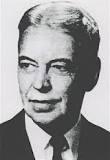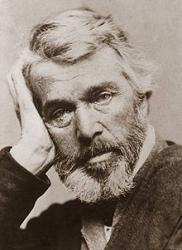Planning worship?
Check out our sister site, ZeteoSearch.org,
for 20+ additional resources related to your search.
- |
User Links
Person Results
Walter Russell Bowie

1882 - 1969 Scripture: Isaiah 25:8 Author of "O Holy City, Seen of John" in Glory to God Walter Russell Bowie (October 8, 1882–April 23, 1969), was a priest, author, editor, educator, hymn writer, and lecturer in the Episcopal Church (United States).
See also in:
Wikipedia
Walter Russell Bowie
Winfred Douglas
1867 - 1944 Person Name: C. Winfred Douglas Scripture: Isaiah 25:8 Harmonizer of "MORNING SONG" in Glory to God Charles Winfred Douglas (b. Oswego, NY, 1867; d. Santa Rosa, CA, 1944), an influential leader in Episcopalian liturgical and musical life. Educated at Syracuse University and St. Andrews Divinity School, Syracuse, New York, he moved to Colorado for his health. There he studied at St. Matthew's Hall, Denver, and founded the Mission of the Transfiguration in Evergreen (1897). Ordained a priest in the Episcopal Church in 1899, he also studied in France, Germany and England, where he spent time with the Benedictines of Solesmes on the Island of Wight from 1903 to 1906. For much of his life, Douglas served as director of music at the Community of St. Mary in Peekskill, New York, and had associations with cathedrals in Denver, Colorado, and Fond du Lac, Wisconsin. He promoted chanting and plainsong in the Episcopal Church through workshops and publications such as The American Psalter (1929), the Plainsong Psalter (1932), and the Monastic Diurnal (1932). His writings include program notes for the Denver Symphony Orchestra, various hymn preludes; organ, as well as the book, Church Music in History and Practice (1937). He was editor of both the Hymnal 1916 and its significant successor, Hymnal 1940, of the Episcopal Church. Douglas's other achievements include a thorough knowledge of the life and culture of Hopi and Navajo natives, among whom he lived for a number of years.
Bert Polman
Winfred Douglas
Cyril Alington

1872 - 1955 Person Name: Cyril A. Alington, 1872-1955 Scripture: Isaiah 25:7-9 Author of "Good Christian Friends, Rejoice and Sing" in Lutheran Service Book Educated at Trinity College, Oxford, England, Cyril A. Alington (b. Ipswich, England, 1872; d. St. Leonards, Hertfordshire, England, 1955) was ordained a priest in the Church of England in 1901. He had a teaching career that included being headmaster at Shrewsbury School and Eton College. He was dean of Durham from 1933-1951 as well as chaplain to the king of England. His writings include literary works and Christianity in England, Good News (1945). Many of his hymns appeared in various twentieth-century editions of the famous British hymnal, Hymns Ancient and Modern.
Bert Polman
Cyril Alington
Melchior Vulpius
1570 - 1615 Person Name: Melchior Vulpius, c. 1570-1615 Scripture: Isaiah 25:7-9 Composer of "GELOBT SEI GOTT" in Lutheran Service Book Born into a poor family named Fuchs, Melchior Vulpius (b. Wasungen, Henneberg, Germany, c. 1570; d. Weimar, Germany, 1615) had only limited educational opportunities and did not attend the university. He taught Latin in the school in Schleusingen, where he Latinized his surname, and from 1596 until his death served as a Lutheran cantor and teacher in Weimar. A distinguished composer, Vulpius wrote a St. Matthew Passion (1613), nearly two hundred motets in German and Latin, and over four hundred hymn tunes, many of which became popular in Lutheran churches, and some of which introduced the lively Italian balletto rhythms into the German hymn tunes. His music was published in Cantiones Sacrae (1602, 1604), Kirchengesangund Geistliche Lieder (1604, enlarged as Ein schon geistlich Gesanglmch, 1609), and posthumously in Cantionale Sacrum (1646).
Bert Polman
Melchior Vulpius
Thomas Carlyle

1795 - 1881 Person Name: Thomas Carlyle, 1795-1881 Scripture: Isaiah 25:1-9 Translator of "A safe stronghold our God is still" in Singing the Faith Thomas Carlyle (4 December 1795 – 5 February 1881) was a Scottish satirical writer, essayist, historian and teacher during the Victorian era. He called economics "the dismal science", wrote articles for the Edinburgh Encyclopedia, and became a controversial social commentator.
Coming from a strict Calvinist family, Carlyle was expected to become a preacher by his parents, but while at the University of Edinburgh he lost his Christian faith. Calvinist values, however, remained with him throughout his life. His combination of a religious temperament with loss of faith in traditional Christianity, made Carlyle's work appealing to many Victorians who were grappling with scientific and political changes that threatened the traditional social order. He brought a trenchant style to his social and political criticism and a complex literary style to works such as The French Revolution: A History (1837). Dickens used Carlyle's work as a primary source for the events of the French Revolution in his novel A Tale of Two Cities.
--en.wikipedia.org
========================
Carlyle, Thomas, the Essayist and Historian, is known to hymnody solely through his translation of Luther's "Ein feste Burg," q.v. He was born near Ecclefechan, Dumfriesshire, Dec. 4, 1795, and died at Chelsea, Feb. 5, 1881.
--John Julian, Dictionary of Hymnology (1907)
Thomas Carlyle
Rupert E. Davies
1909 - 1994 Person Name: Rupert E. Davies, 1909-1994 Scripture: Isaiah 25:1-9 Alterer (v. 4) of "A safe stronghold our God is still" in Singing the Faith
Rupert E. Davies
E. Harold Greer
1886 - 1957 Person Name: E. Harold Greer, 1886-1957 Scripture: Isaiah 25:1-9 Adapter of "THE CALL" in Common Praise (1998)
E. Harold Greer
E. Harold Geer
1886 - 1957 Person Name: E. Harold Geer, 1886-1954 Scripture: Isaiah 25:4-7 Adapter of "THE CALL" in Together in Song
E. Harold Geer
Catherine Winkworth

1827 - 1878 Scripture: Isaiah 25:6-10 Translator (English) of "Christ Jesus Lay" in Voices Together Catherine Winkworth (b. Holborn, London, England, 1827; d. Monnetier, Savoy, France, 1878) is well known for her English translations of German hymns; her translations were polished and yet remained close to the original. Educated initially by her mother, she lived with relatives in Dresden, Germany, in 1845, where she acquired her knowledge of German and interest in German hymnody. After residing near Manchester until 1862, she moved to Clifton, near Bristol. A pioneer in promoting women's rights, Winkworth put much of her energy into the encouragement of higher education for women. She translated a large number of German hymn texts from hymnals owned by a friend, Baron Bunsen. Though often altered, these translations continue to be used in many modern hymnals. Her work was published in two series of Lyra Germanica (1855, 1858) and in The Chorale Book for England (1863), which included the appropriate German tune with each text as provided by Sterndale Bennett and Otto Goldschmidt. Winkworth also translated biographies of German Christians who promoted ministries to the poor and sick and compiled a handbook of biographies of German hymn authors, Christian Singers of Germany (1869).
Bert Polman
========================
Winkworth, Catherine, daughter of Henry Winkworth, of Alderley Edge, Cheshire, was born in London, Sep. 13, 1829. Most of her early life was spent in the neighbourhood of Manchester. Subsequently she removed with the family to Clifton, near Bristol. She died suddenly of heart disease, at Monnetier, in Savoy, in July, 1878. Miss Winkworth published:—
Translations from the German of the Life of Pastor Fliedner, the Founder of the Sisterhood of Protestant Deaconesses at Kaiserworth, 1861; and of the Life of Amelia Sieveking, 1863.
Her sympathy with practical efforts for the benefit of women, and with a pure devotional life, as seen in these translations, received from her the most practical illustration possible in the deep and active interest which she took in educational work in connection with the Clifton Association for the Higher Education of Women, and kindred societies there and elsewhere. Our interest, however, is mainly centred in her hymnological work as embodied in her:—
(1) Lyra Germanica, 1st Ser., 1855. (2) Lyra Germanica, 2nd Ser., 1858. (3) The Chorale Book for England (containing translations from the German, together with music), 1863; and (4) her charming biographical work, the Christian Singers of Germany, 1869.
In a sympathetic article on Miss Winkworth in the Inquirer of July 20, 1878, Dr. Martineau says:—
"The translations contained in these volumes are invariably faithful, and for the most part both terse and delicate; and an admirable art is applied to the management of complex and difficult versification. They have not quite the fire of John Wesley's versions of Moravian hymns, or the wonderful fusion and reproduction of thought which may be found in Coleridge. But if less flowing they are more conscientious than either, and attain a result as poetical as severe exactitude admits, being only a little short of ‘native music'"
Dr. Percival, then Principal of Clifton College, also wrote concerning her (in the Bristol Times and Mirror), in July, 1878:—
"She was a person of remarkable intellectual and social gifts, and very unusual attainments; but what specially distinguished her was her combination of rare ability and great knowledge with a certain tender and sympathetic refinement which constitutes the special charm of the true womanly character."
Dr. Martineau (as above) says her religious life afforded "a happy example of the piety which the Church of England discipline may implant.....The fast hold she retained of her discipleship of Christ was no example of ‘feminine simplicity,' carrying on the childish mind into maturer years, but the clear allegiance of a firm mind, familiar with the pretensions of non-Christian schools, well able to test them, and undiverted by them from her first love."
Miss Winkworth, although not the earliest of modern translators from the German into English, is certainly the foremost in rank and popularity. Her translations are the most widely used of any from that language, and have had more to do with the modern revival of the English use of German hymns than the versions of any other writer.
-- John Julian, Dictionary of Hymnology (1907)
============================
See also in:
Hymn Writers of the Church
Catherine Winkworth
Johann Christian Jacobi
1670 - 1750 Scripture: Isaiah 25:6-10 Translator (English) of "Christ Jesus Lay" in Voices Together Jacobi, John Christian, a native of Germany, was born in 1670, and appointed Keeper of the Royal German Chapel, St. James's Palace, London, about 1708. He held that post for 42 years, and died Dec. 14, 1750. He was buried in the Church of St. Paul's, Covent Garden. His publications included :—
(1) A Collection of Divine Hymns, Translated from the High Dutch. Together with their Proper Tunes and Thorough Bass. London: Printed and Sold by J. Young, in St. Paul’s Churchyard; . . . 1720. This edition contains 15 hymns. Two years later this collection, with a few changes in the text and much enlarged, was republished as (2) Psalmodia Germanica; or a Specimen of Divine Hymns. Translated from the High Dutch. Together with their Proper Tunes and Thorough Bass. London: J. Young . 1722. This edition contained 62 hymns, of which 3 ("He reigns, the Lord our Saviour reigns"; "Is God withdrawing"? "Shepherds rejoice") and the first stanza of another ("Raise your devotion, mortal tongues," from "Hosannah to the Prince of Life") were taken from I. Watts. A second part was added in 1725, and was incorporated with the former part in 1732. London, G. Smith. After Jacobi's death the Psalmodia Germanica was republished, in 1765, by John Haberkorn, with a Supplement of 32 pieces.
[George Arthur Crawford, M.A.]
-- John Julian, Dictionary of Hymnology (1907)
Johann Christian Jacobi


 My Starred Hymns
My Starred Hymns


